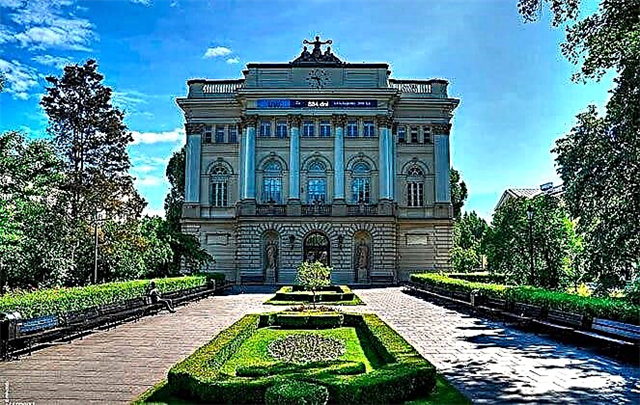Choosing a direction for emigration, our compatriots are increasingly looking at their northern neighbor. Russians in Finland enjoy two important advantages: firstly, the proximity of the territories, and secondly, the benevolence with which the Finns treat Russian migrants. And yet, when planning a move, you should learn a lot about the specifics of integration into Finnish society.

Migration to Finland
Statistics of the Finnish Department of Migration says that the number of foreign citizens arriving in Finland for permanent residence is about 4% of the total population (data for 2021). And this is about 240 thousand people. Another 160 thousand live in the country on a temporary basis or are holders of dual citizenship.
To say how many Russians there are in Finland can only be approximated. Today it is the third largest ethnic community (after the Finns and Swedes).
It is Russian migrants who most often apply for temporary resident status. The most popular reasons for this are:
- marriage (43%);
- employment (32%);
- training (22%).
The influx of Russian migrants into the country is increasing every year. On average, this figure is 500-600 people annually. Most of the newcomers are labor migrants. The competition for the Russians is made up of Italians, Spaniards, Portuguese, Greeks.
How Finns feel about Russians
One of the most pressing questions for immigrants is how are Russians treated in Finland? We can say with confidence that both tourists and migrants are welcome here. The former come to rest, thereby helping to develop the resort and tourism business, the latter are ready to do any job, as long as the earnings meet their expectations.
Still, one cannot fail to note the discrimination that Russian-speaking migrants have to face when applying for a job. The European Commission on Human Rights has recorded multiple violations in this area. The Finnish government responded with an immediate reaction and the creation of the Culture Foundation, which aims to support Russian culture.
But it should be remembered that the attitude towards Russians in Finland also depends directly on a particular person. If the migrant manages to quickly find a common language with the residents of the country, then his nationality, habits or skin color will not matter at all.
If you believe the reviews, the state itself is also maximally interested in the quick adaptation of newcomers to the new conditions. For this, language courses and special services are being created that allow you to cope with everyday issues, place children in kindergartens and help the family establish contacts with their environment.
How is the adaptation period
Moving to a foreign state inevitably implies the acceptance or rejection of new foundations, traditions, and behavioral features of local residents. The sooner a migrant realizes the inevitability of changes in his daily life, the need to learn a new language, the easier the adaptation period will pass.
If we talk about mentality, then the Finns are more restrained, they say little about personal things, and prefer comfort and practicality in clothes. For example, Finnish women are surprised by the thoroughness with which Russian women take care of their appearance and choose clothes that are far from comfortable by local standards.
How Russians live in Finland largely depends on how quickly they managed to find a job and learn the language. But even in this case, you do not need to count on the fact that in the team you will immediately establish a mutual understanding. It will take at least six months to join the established circle of colleagues.
Russian communities
According to Finnish statistics, the number of Russian-speaking migrants in the country is 1% of the total population, which is about 75 thousand people (data for 2021). They can be conditionally divided into two Russian communities in Finland:
- migrants who settled in the country before the beginning of the 90s of the last century;
- a new wave that began to arrive on Finnish territory in the 90s of the last century.
Until 1996, the influx of Russian immigrants was not regulated in any way. A little later, the authorities tightened the laws, establishing the presence of Finnish roots as a criterion, and made an examination for knowledge of the Finnish language compulsory. Today every migrant is obliged to pass the IPAKI test and show the A2 level.

The Russian diaspora in Finland ranks third in number. Today they are united by numerous communities (about 40 organizations). Active activities are conducted by:
- Russian club "Sadko",
- youth society Alliance HVNA,
- Society for the Support of the Russian Language in Lahti,
- TOK is a society of Russian-speaking youth,
- Russian theater,
- Society for the Support of the Russian-Finnish School,
- Russian Center in Finland dealing with culture and science (Helsinki).
Do not forget about the Ingrian Finns (a sub-ethnic group, most of whom live in St. Petersburg and have entire neighborhoods at their disposal), who were the first wave of immigrants from Russia. In Finland, they are united in the Ingermanland Union, which operates in the cities of Turku, Lahti, Helsinki, and Hyvinkää.
Russian TV channels broadcast on the territory of the Finnish state, the newspaper Spektr is published, and Russian schools operate. For many years the Russian House in Finland has been organizing meetings of compatriots, concerts, festivals and other events aimed at the cultivation of Russian culture.
A little about the standard of living in the country
In 2021, Finland was ranked 15th in the world ranking in terms of well-being and living standards. At the same time, Russia is at the 49th position. At the same time, Finnish territory does not have a large amount of natural resources. The only resources that the Finns use (by the way, very rationally) are timber and fish. The state has advanced far ahead in the field of high technologies and IT.
But not only this creates comfortable living conditions.
The country's authorities in every possible way control the life of their citizens. For example, the assessment of the quality of food products is carried out by 18 expert commissions. There are only four of them in Russia.
Education in Finland can be obtained free of charge at all levels if you choose a program in Finnish. This is actively used by Russian students. Their most popular universities are the universities of Oulu, Lappeenranta, Aalto, Turku, Helsinki and the Finnish Academy of Arts.
Labor migrants in Suomi are attracted by salaries. The average income in the country is about 3 thousand euros. But not everyone has a real opportunity to get a job and a decent pay.
Those who speak Finnish and English, have a specialty and experience in it, have no problems. Specialists in the following areas are in special demand:
- Agriculture,
- construction,
- Internet technologies,
- medicine,
- hotel business.
The Finnish authorities are trying to avoid large wage gaps in different positions, and this has a beneficial effect on the crime rate, which is considered one of the lowest in Europe.
It should be noted that the purchase of real estate in Finnish territory does not give the right to obtain a residence permit. All you can get is a long-term visa. Therefore, when choosing a basis for migration, it is worth considering other options.
Where to stay
Finding out where Russians live in Finland, many want to settle closer to “their own” in order to quickly adapt. In fact, this will allow you to feel less nostalgia, but it will not affect integration into the local society in any way. Only maximum immersion in new conditions can help.
The choice of a place of residence should depend on the goals pursued by the migrant.If you want to find a good job, then it is best to settle in Helsinki - the business and financial center of the country.
Russian cities in Finland, or rather, settlements with the largest number of Russian-speaking population, are located in the border areas. A large number of compatriots can be found in the southeast of the country: in Lappeenranta, Imatra, Joensuu.
You can easily find a job in Finnish resorts, where there are many Russian tourists. For example, in Lappeenranta and Imatra.

Those who are considering moving to Russian regions in Finland should pay attention to Uusimaa and the capital region. It is home to about 40% of the total Russian-speaking population.
How pensioners live in Finland
The Finnish government pays special attention to vulnerable groups of the population:
- pensioners,
- the poor
- young mothers
- children,
- unemployed.
Pension security implies an allowance that is assigned based on the results of a citizen's labor activity. In addition to her, the following types of assistance are assigned:
- national pension,
- for incapacity for work,
- immigrant allowance,
- old age.
The national pension (minimum payment) for people who are left alone is provided in the amount of 637 euros. Families receive 565 euros. Only those who have been a resident of the country for more than 40 years can claim the full payment.
Russian pensioners in Finland receive assistance for migrants in the amount of the national pension, but on condition that they are 65 years old and have lived in the country for at least 5 years.
The cost of medicines and some operations (for example, ophthalmic) is compensated by the state. Some benefits can also be obtained for utility bills.
Outcomes
The Russian population in Finnish territory makes up 4% of the total population and is the third largest ethnic group. Most Russians can be found in the border regions, as well as in the east and southeast of the country. Those who speak Finnish and have a demanded specialty have a higher chance of quickly adapting to the new conditions.











